FORT SAM HOUSTON, Texas -- Soldiers from around the world came together for two weeks in May at Camp Bullis to compete for the coveted Expert Field Medical Badge and prove to their comrades that they are the "best of the best."
The EFMB competition is a realistic test that emulates what Army medics are required to do under combat conditions. Soldiers who attain this badge can truly call themselves experts because they have met the standards and challenges that were brought before them.
More than 170 candidates participated in this year's event with more than 154 personnel in various supporting roles to sustain the EMFB competition.
"Seventy-one individuals are from Fort Sam Houston running the three combat testing lanes, and we also have 83 Soldiers awaiting training who are being utilized as squad leaders, team leaders and patients," said Capt. Werner Barden, training support commander at Camp Bullis.
The competition has a very high attrition rate for any combination of reasons - the Texas heat and climate, the practical application of the knowledge, and the physical stamina required, said Barden.
Open to all field medical personnel, the first week of the two-week competition is the evaluation phase, where instructors review testing standards with the Soldiers preparing them for the next phase of the competition.
During the second week, which is the testing phase, Soldiers begin the competition by maneuvering three combat medical lanes that cover tactical combat casualty care, medical and casualty evacuation, communications, warrior skills, day and night land navigation and a written test. The week culminates with a 12-mile road march.
Pvt. Hans Wittenberg, a combat medic assigned to the 5th Squadron, 15th Cavalry, Fort Knox, Ky., did not pass the competition, but said he wants to come back again, "I've wanted this for a while, ever since I was in Advanced Individual Training. Next time I'll know what to expect; I'll be more mentally prepared. I need to brush up on the non-medical stuff. Hopefully, next time I will be better prepared."
Competitors were subject to all warfare conditions that an Army medic may encounter while in combat. In the weeklong practical test, Soldiers were surrounded by explosions and small-arms fire. Testing their nuclear, biological and chemical readiness, billows of colored smoke engulfed Soldiers out in the field, who then had to demonstrate their proficiency and skill while under a chemical attack.
Soldiers had to work their way through the wooded and hilly terrain of Camp Bullis, avoiding attacks and navigating their way through the woods both day and night, stopping to assist and assess the wounded. The care of the wounded comes first. Soldiers had to demonstrate one and two-person carries and drags, and litter carries.
The night before the grand finale some candidates had to retake the 100-question written test that covered both medical and warrior skills that are performed during deployments. Candidates must receive a score of 75 to pass.
The EFMB competition culminated with an exhausting 12-mile road march where Soldiers had to carry an M-16 rifle and a backpack filled with equipment. The road march has to be finished within a three-hour time limit.
On the last day of the competition, 35 of the original 176 candidates successfully completed this year's competition.
Staff Sgt. Cedric Griggs, a combat medic instructor/writer assigned to G Company, 232 Medical Battalion here, earned the badge as well as the title of Distinguished Honor Graduate.
"I thought the competition was very challenging," Griggs said. "To be able to complete the tasks without any 'no-gos' was a surprising achievement for me. But if it wasn't for my battle buddies in my tent helping me study, I don't think I could have achieved such an honor."
Second Lt. Stephen Krutko, a 70B health services administration officer from the 21st Combat Support Hospital, Fort Hood, Texas, was the first Soldier over the finish line, completing the road march in 2 hours, 24 minutes, 14 seconds. "The badge sets the standard of excellence," he said. "For me personally as a lieutenant, it gives me a lot of credibility with my Soldiers. I know what they have to go through and what they have to overcome."
Col. John Cook, commander, 32nd Medical Brigade, congratulated the graduates during the EFMB's closing ceremony.
He also took the time to recognize those Soldiers who did not pass the competition. "I want to take just a moment to recognize not only those individuals who are going to have the honor of having the EFMB put on their uniform, but I want to recognize every Soldier who decided to ruck up, have the moxie, and participate in trying to get a badge that was very, very difficult," said Cook. He asked the audience "to give those phenomenal Soldiers a round of applause."
"As you enjoy the well-earned fruits of your labor, I invite you to reflect on the powerful words of the great American, Charles Lindbergh, who said, 'Success is not measured by what a man accomplishes, but by the opposition he has encountered and the courage with which he has maintained the struggle against overwhelming odds,'" said Cook.
"The hard work, dedication and commitment to excellence you demonstrated this week are the very foundation of our great AMEDD institution and you have every reason to be extremely proud of today's accomplishment," he added.
The EFMB was designed as a special skill award for recognition of exceptional competence and outstanding performance by field medical personnel. The Department of the Army approved it June 18, 1965, and since 1986, more than 96,000 personnel have competed for the badge.
(Minnie Jones works for the Fort Sam Houston Public Information Office)
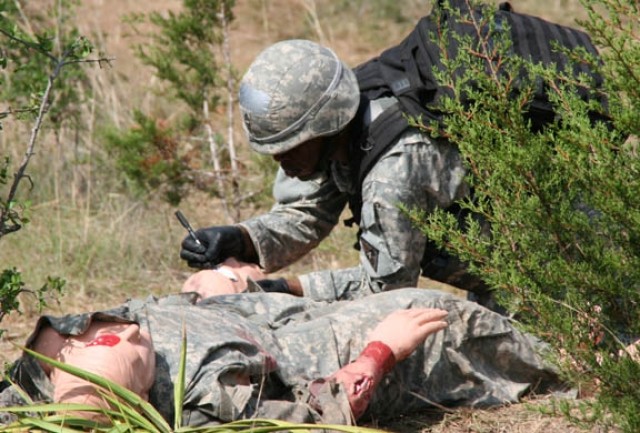
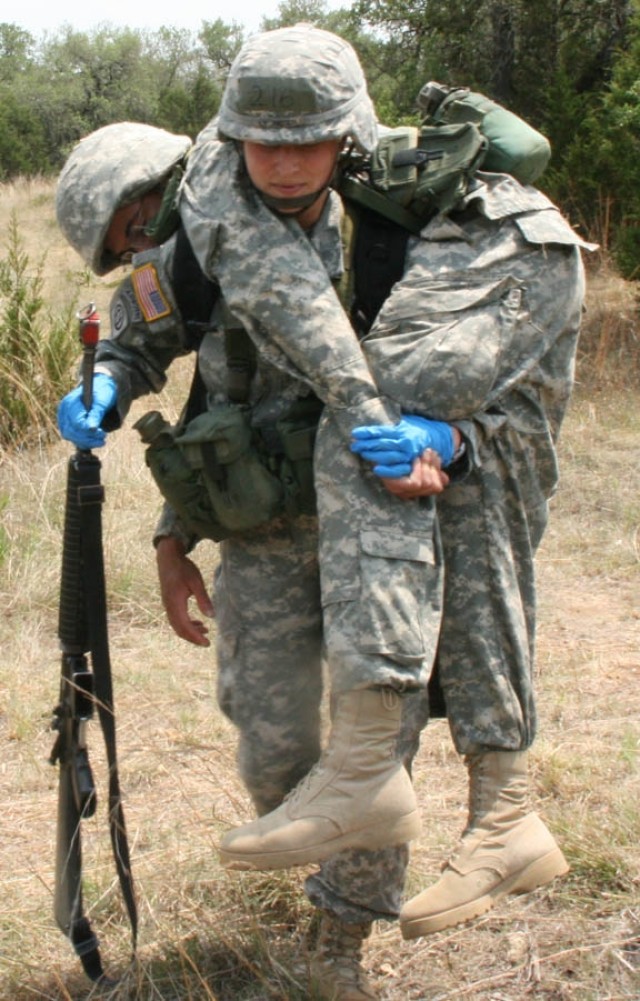
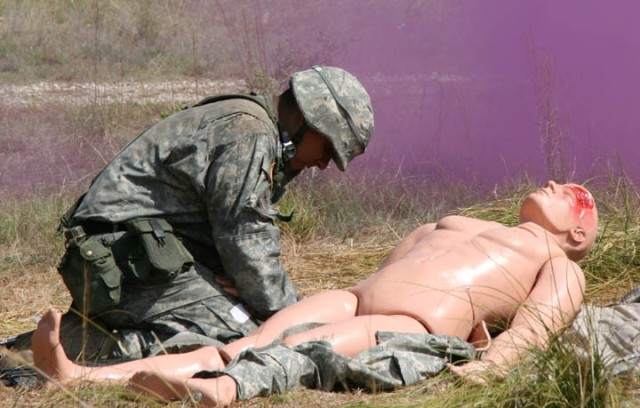
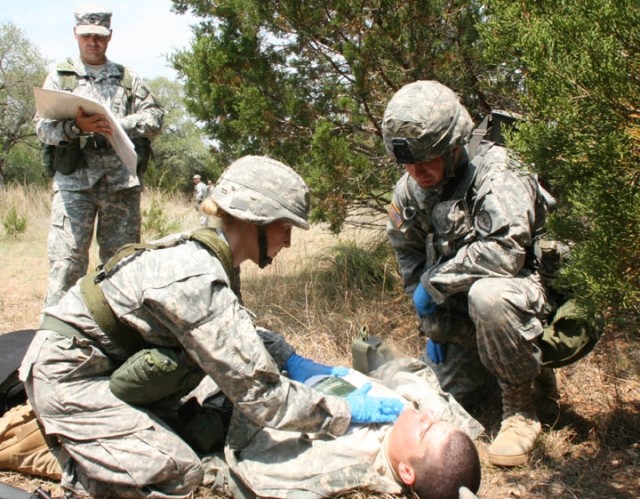
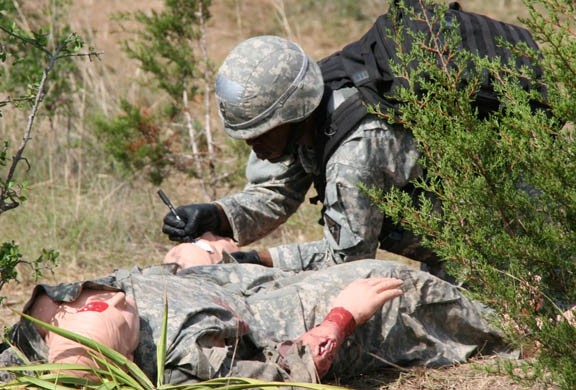
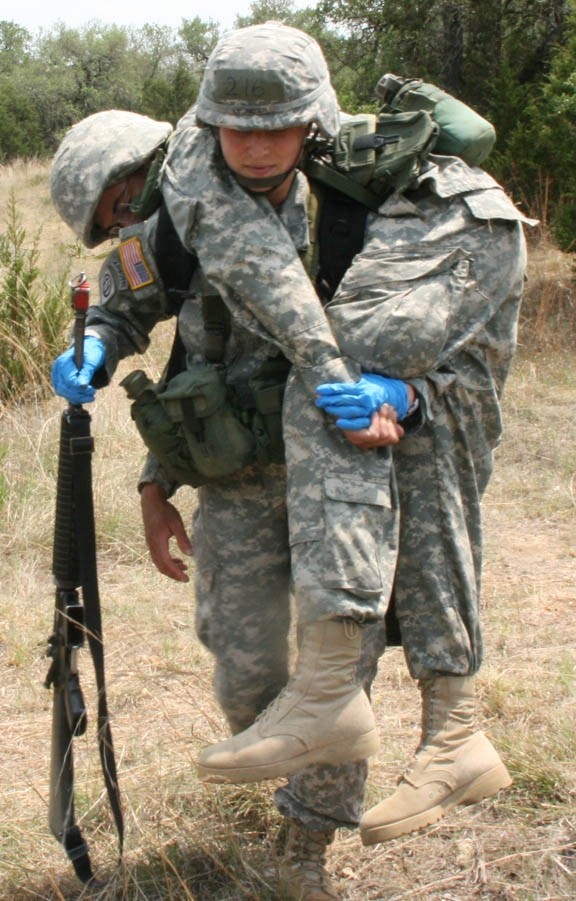
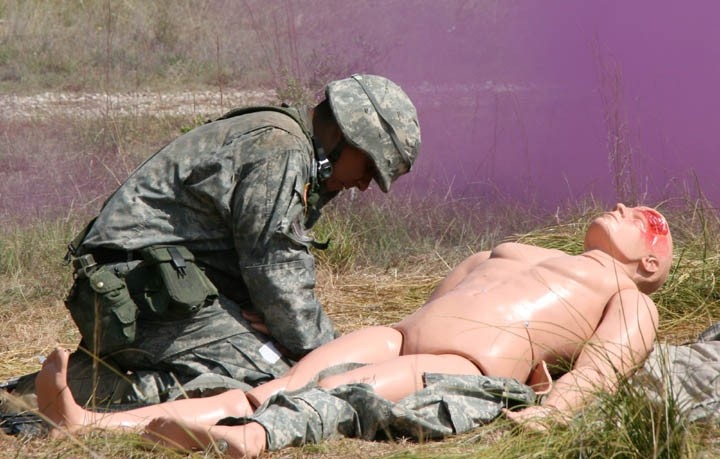
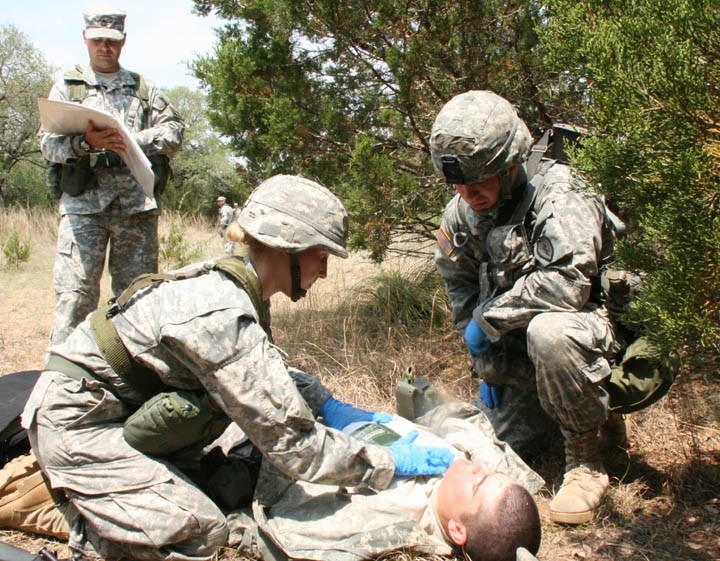
Social Sharing